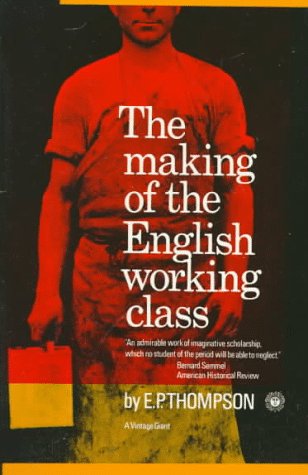 Richard Hyman is Emeritus Professor of Industrial Relations at the London School of Economics and is author of a dozen books and numerous journal articles on industrial relations, collective bargaining, trade unionism, and labour market policy. Here Richard shares what books inspired him and how came to academia by default.
Richard Hyman is Emeritus Professor of Industrial Relations at the London School of Economics and is author of a dozen books and numerous journal articles on industrial relations, collective bargaining, trade unionism, and labour market policy. Here Richard shares what books inspired him and how came to academia by default.
When I talk to sociologists I call myself a historian; when I talk to historians I call myself a sociologist. In my historian role I became well aware of the fallibility of memory (my doctorate was a trade union history which involved a considerable number of interviews with elderly former officials). In my sociologist role a key theme that I discovered was how we all shape and re-shape our narratives of our past in the light of the present. Indeed this was one of the many rich veins of insight in one of the earliest works of sociology which deeply impressed me (and many others): Berger and Luckmann, The Social Construction of Reality.
So when I am asked which books first inspired me to work in my field, my answer will be evasive. While still at school I began reading Marx (indeed partly as an act of provocation I chose the Marx-Engels selected works as a school prize). Soon after going to university I encountered the writings of Rosa Luxemburg, and was particularly impressed by her 1906 pamphlet on the Mass Strike, and by her 1918 critique of the Russian Revolution (a critique written in prison, which she soon qualified).
Intellectual and professional biographies are not necessarily that neat. Probably more academics than are happy to admit became university teachers partly by default; certainly I never constructed a grand career plan, and would describe none of the books I have read as life-changing. Like so many in my field I was profoundly influenced by the work of EP Thompson: his book on William Morris restored the status of Morris as a distinctive humanist socialist and not only a designer of wallpaper (which I love) and also his magisterial Making of the English Working Class.Two very different books that influenced me greatly as an undergraduate were both by non-Marxists whose ideas were however in many respects close: CB Macpherson, The Political Theory of Possessive Individualism, which helped me make sense of my political philosophy course; and RH Tawney, The Acquisitive Society, a devastating critique of the moral bankruptcy of capitalism. Marxism was part and parcel of my political involvement in the International Socialists as a student and until the organisation made its ultra-left lurch to become the Socialist Workers’ Party. Do such writings explain my subsequent academic life researching trade unions and industrial conflict?

In the 1970s Harry Braverman’s Labor and Monopoly Capital spurred a generation of industrial sociologists and industrial relations scholars to make Marx’s analysis of the labour process central to their research and teaching. In the same period, the advance of feminist scholarship forced all of us to recognise the inadequacies of a gender-blind approach to industrial relations: gender politics were part of the often hidden sub-text of the institutions which were central to the study of industrial relations. The same was true, of course, of the politics of race and ethnicity.
Yet a crucial point is that these were not in the main the insights of individual authors: intellectual advance is primarily a collective process. Literary history is rarely the history of great women and great men. So when I am asked which recent book published in my field I would recommend to others as a must read, I would again demur. My field, industrial relations, has been increasingly informed in the past decade by debates around the themes of varieties of capitalism and institutional change. But intellectual advances have been incremental: there has been no single block-buster. Two specific books I might mention are Vivien Schmidt, The Futures of European Capitalism and Kathleen Thelen, How Institutions Evolve. But these are pieces in a jigsaw, not the whole picture.
Finally, I am asked what I read in my spare time. Like many others who have responded, I can only say that a chance would be a fine thing. Though for the past two years I have been officially retired, I seem to work more hours than before, but now what I do is totally self-directed. It is an opportunity to complete some of the books for which I lacked space before. If I ever tire of writing, I have many shelves of ‘great literature’ which I will be pleased to visit or revisit.
————————————————————————
Richard Hyman is Emeritus Professor of Industrial Relations at the London School of Economics. He has written extensively on the themes of industrial relations, collective bargaining, trade unionism, industrial conflict and labour market policy, and is author of a dozen books (including Strikes and Industrial Relations: A Marxist Introduction) as well as numerous journal articles and book chapters. He is founding editor of the European Journal of Industrial Relations. His comparative study Understanding European Trade Unionism: Between Market, Class and Society is widely cited by scholars working in this field. He is currently working on a book for Oxford University Press comparing trade union strategies in ten European countries.




